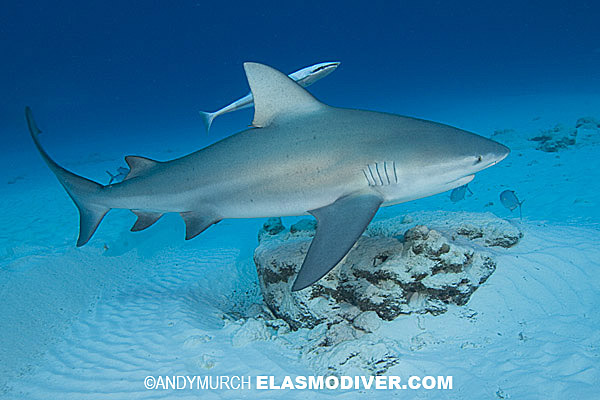 |
| great white shark Credit: istockphoto.com/Chuck Babbitt - |
Shark attacks are not common, in fact they are very rare indeed.
That is why they makes the world’s Press when they happen.
At the same time it is important we learn that sharks are at the top of the oceanic food chain.
We humans are top of the food chain on land. We belong in the land. They belong in the sea.
While it would be nice to surmise that "never the twain shall meet", in reality we do meet, because we go into the sea.
It is worth pointing out that sharks do not come on land, therefore when we meet a shark, it is on their territory, not ours.
Even so, with millions of us taking to the waters on various pursuits daily, whether that be fishing, diving, bathing, surfing or taking part in any water sports, or even being shipwrecked at sea, there are still relatively few encounters between shark and man.
There are less than 100 reported shark attacks a year, and only a small percentage of them are fatal.
Sharks are naturally inquisitive creatures, and many shark attacks can be put down to a shark tasting us, to see if we are food.
We are alien to them; they do not know what we are.
Very seldom do sharks continue to attack and bite us after the first taste.
I suppose we are not salty enough, or perhaps because we have too many bones.
Commonly people who have been bitten by a shark will see the shark back off, giving the victim time to get out of the water.
This is especially true of great white sharks, the type of sharks who are responsible for the most attacks on humans.
The problem with being given even a ‘friendly’ bite by a great white, is that their teeth are designed for tearing, and they are very big, powerful animals, so sometimes we die from just one bite, especially if an artery was torn.
Torn arteries in shark attacks
Arteries carry oxygenated blood away from the heart at tremendous speeds, so when one is severed, the blood spurts out at a frightening rate. We can lose so much blood so quickly in a really short space of time, that our internal organs shut down, and we die.
A severed artery needs to be stopped up within 3 minutes.
That is why it is of vital importance that everybody learns how to stop someone bleeding to death, or slow down the blood loss until emergency services arrive.
Sharks usually only bite once then realise their mistake
Great whites aside, some sharks do continue biting after the first taste.
Many smaller sharks go into what could be described as a feeding frenzy, when they just lose control and bite and snap at everything in the water, including each other if there are a shoal of them.
 |
| oceanic whitetip shark |
Included among those are oceanic whitetip sharks.
Then there is the bull shark.
This shark is commonly called the ‘pitbull of the sea’ and for good reason. It’s just a nutter!
Bull sharks when they attack become just like a rabid pitbull, biting and attacking and not stopping, which is why there are a higher percentage of deaths in people attacked by bull sharks than there are for great whites.
 |
| bull shark |
The vast majority of types of sharks are timid creatures, who would swim away rather than face confrontation.
Even out of the big 3 - the white, tiger and bull shark, most of them totally ignore us even when we swim in the same area of water as them.
However, because of the damage they are capable of inflicting, it is always better to vacate the water the minute the shark spotters tell you there is a shark in the area.
We just never know when they might attack.
If we want to avoid shark attacks, then we have to give them the respect they deserve when we are in their homes, which are the oceans and seas of the world.
No comments:
Post a Comment